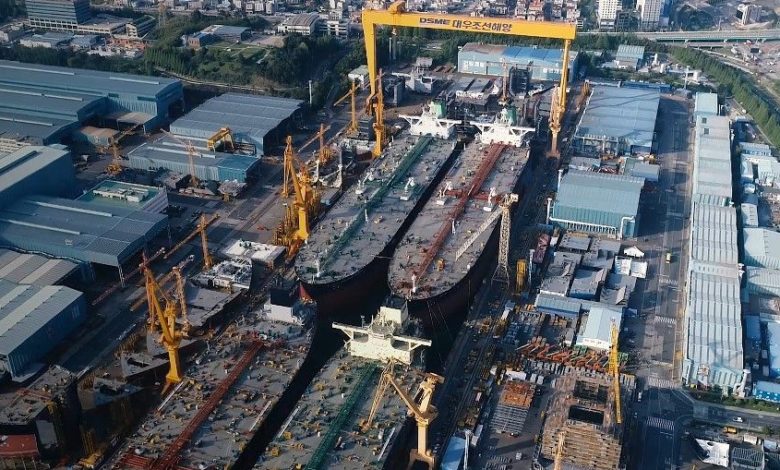DSME and ABS to develop 70,000 cu m liquefied CO2 carrier

South Korean shipbuilder Daewoo Shipbuilding & Marine Engineering (DSME) and American class society ABS have joined forces to develop designs for a 70,000 cu m very large, liquefied CO2 (LCO2) carrier.
The partners said that the joint development project (JDP) is responding to the development of carbon capture utilisation and storage (CCUS) technology, which will ultimately require larger vessels for CO2 transport than those used in the existing food industry.
“CCUS can play a role in reducing emissions in a range of industries, but the supply chain will need vessels capable of transporting CO2 safely and efficiently. That’s why this JDP with DSME is so important, not just for the maritime industry but for ambitions to reduce the carbon footprint of the entire global economy,” said Patrick Ryan, ABS senior vice president, global engineering and technology.
DSME, which has previously developed a conceptual design of a 100,000 cu m LCO2 carrier, is developing a new design that can increase operational efficiency by increasing tank size. To increase tank capacity, DSME and ABS will study the application of various steel materials as well as existing low-temperature steel.
The new LCO2 vessels will comply with the ABS rules for building and classing marine vessels and the ABS guide for liquefied gas carriers with independent tanks as well as the international code for the construction and equipment of ships carrying liquefied gases in bulk (IGC Code).
“DSME will maintain its unique competitiveness for the technology and quality in the field of liquefied gas carriers, such as LNG and LPG carriers, through this development of very large LCO2 carriers. And it will be able to maintain an advanced technology in the market of LCO2 carriers, which is one of the major concerns in the CCUS sector,” said Nuno Kim, DSME director, head of ship basic design division.
Other South Korean companies are also looking to enter the CO2 carrier arena. Earlier in August, steelmaking giant Posco teamed up with Hyundai Mipo Dockyard and its parent Korea Shipbuilding & Offshore Engineering along with Lloyd’s Register and the Liberian Registry to develop a 20,000 cu m LCO2 carrier by 2025.
Meanwhile, in Japan, Mitsubishi Shipbuilding partnered up with French energy giant TotalEnergies to carry out a feasibility study for the development of an LCO2 carrier. Mitsubishi Heavy Industries (MHI) earlier unveiled plans to commercialise a CO2 carrier design by 2025 to support its diversification into the carbon capture sector.
